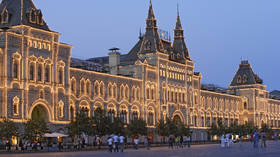Russia planning major crackdown on ‘grey’ economy – RBK

The Russian government has been tasked with mounting a crackdown on undeclared unemployment, moscow business daily RBK reported on Friday, citing two participants of a strategic session chaired by Prime Minister Mikhail Mishustin earlier this week.
Sources told the business daily that a set of measures is being considered at the federal level, including the use of big data to monitor companies, as well as inspections of organizations with signs of illegal employment by the Federal Tax Service.
According to RBK sources, the monitoring is necessary despite the falling numbers of ‘cash under the table’ salaries, while some employees are still illegally being paid below the minimum wage. Salaries in the informal sector are on average 30% lower, the sources noted.
According to the Federal State Statistics Service (Rosstat), for 10% of the Russian population, the average reported per capita monthly income in the fourth quarter of 2022 amounted to 10,500 rubles ($132), while the official minimum wage was 15,300 rubles ($193).
Participants in the strategic session have also discussed the possibility of introducing support measures for Russian companies that legally pay decent salaries, RBK wrote.
The Ministry of Economic Development reported this month that real earnings in Russia during 2023 will grow more than previously expected, predicting an increase of 5.4%. That growth “will be facilitated by low unemployment and competition for personnel,” as well as the government’s targeted assistance to the population, including to families with children, the indexation of the minimum wage, living wage, pensions and social benefits, the ministry said.
The latest data from Rosstat shows that unemployment in Russia is at its lowest since the 1990s, with the total number of jobless residents in February at 2.635 million.
Russian President Vladimir Putin has also confirmed that unemployment in the country is at a record low, calling on the government to expand the national project for labor productivity.
The Russian leader emphasized that work needed to continue and that young people needed opportunities for their professional development and training so they could acquire skills and ultimately be able to better provide for their families.
For more stories on economy & finance visit RT's business section













